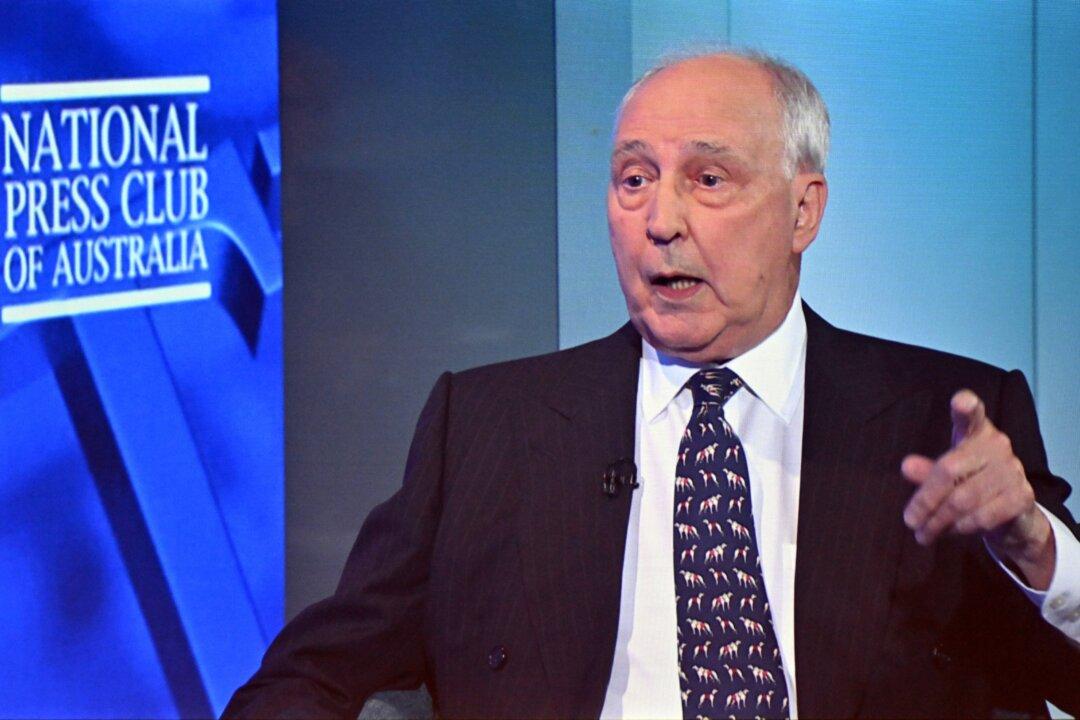Former Prime Minister Paul Keating has had what he described as a “big picture discussion about the geostrategic balances and influences in the world” with Beijing’s Foreign Minister Wang Yi.
Following the pair’s hour-long meeting on March 21 at the Chinese consulate in Sydney, Mr. Keating said Mr. Wang “displayed a keen understanding of Australia’s strengths. Its complementarity with China’s own economy and the prospect of ever-rising living standards for both countries.”





